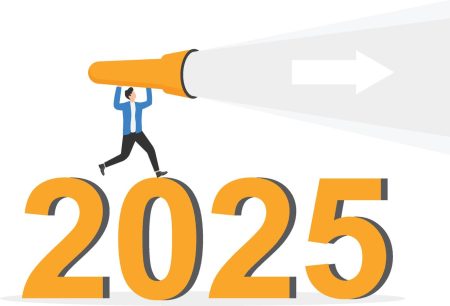It feels like everything costs more these days—and some homeowners are looking for ways to increase cash flow without invading retirement assets. One way to do that? Reverse mortgages.
Reverse mortgages are a creature of federal law. As part of the Housing and Community Development Act of 1987, the Federal Housing Administration (FHA) became responsible for insuring reverse mortgages. The program was initially designed to “meet the special needs of elderly homeowners by reducing the effect of the economic hardship caused by the increasing costs of meeting health, housing, and subsistence needs at a time of reduced income.”
While not as popular today as in their heyday—in 2009, the FHA gave nearly 115,000 HECM loan endorsements—senior homeowners continue to tap into reverse mortgages. According to FHA data, 49,207 homeowners took out FHA-insured reverse mortgages in 2021, and 64,489 did so in 2022 (the number dropped to 32,963 in 2023).
Mechanics
Here’s how a reverse mortgage typically works.
As you pay off your mortgage, you gain equity in your home. Home equity looks great on paper, but it’s not liquid, meaning you can’t use it to pay your bills.
With a reverse mortgage, you borrow against the equity in your home—sort of like a home equity loan. The payments, which can be in a lump sum, a monthly payment, or a combination of the three, are treated like advances against the equity. The amount you can borrow is typically limited to a percentage of your home equity—expect somewhere in the range of 40-60%. Additionally, the FHA maximum limit for home equity conversion mortgages (HECMs) in 2023 was $1,089,300 ($1,149,825 in 2024).
Here’s an example of how it works. Let’s say you have $250,000 of home equity. Normally, you’d only “unlock” that equity when you sell your home. But with a reverse mortgage, you receive a portion of the equity in advance—likely $100,000 to $150,000 in our example—even though you can continue to live in your home.
To qualify, you must be at least 62 (the average age in 2023 was 74.84) and own and use your home as a primary residence. You can’t have any outstanding federal debt, including student loans and back taxes. You must also have sufficient equity in your home to make it worthwhile for the lender, and demonstrate that you have enough cash on hand to continue to pay real estate taxes and maintenance on your home.
You may be required (but not always) to pay any existing mortgage on the house.
With the most common type of reverse mortgage—a home equity conversion mortgage (HECM)—there are no restrictions on your use of the funds so long as you continue to meet those expenses.
(Some specific reverse mortgages may have other restrictions or requirements—for example, a single-purpose reverse mortgage obtained through the government or a nonprofit may be designated for property taxes or home repairs.)
Repayment
Keep in mind that this is a loan. You’re not selling your home—you’ll retain the title. You’re borrowing against the equity in your home.
While you have to pay it back, you won’t have to repay the loan as you go, meaning you won’t make monthly payments. Depending on the terms of your reverse mortgage, it will come due—with interest—when you move, sell your home, reach a term of years, or die. When one of those things happens, the lender may take control of the home—that’s referred to as a reverse foreclosure.
(Importantly, any reverse mortgage becomes due when you move. Older homeowners may be more likely to leave their homes for periods of time, including extended stays in the hospital or rehab units. Read the fine print before you sign. Many agreements allow you to leave your home for up to a year for health reasons without it being considered a “move” for purposes of repaying the loan. If you know the move will be permanent, you should start making arrangements to repay the loan or sell the home so that you’re not force to scramble at the end.)
Downside
Reverse mortgages used to be almost synonymous with predatory lending. Thankfully, restrictions on reverse mortgages have curbed much of the abuse, but that still doesn’t mean it’s for everyone. Reverse mortgages can be pricey—as part of the process, you’re required to sign up for financial counseling at your own expense (typically, a 90-minute session approved by HUD). You will also be expected to pay mortgage fees and typical closing costs like those for a title search, deed recording, and home inspection (this varies by lender). In some instances, you may also need to obtain an appraisal.
In addition to potentially high fees to get started, it’s important to understand that you are exhausting the equity in your home. Once the money is gone, you are still on the hook for repayment—and you’ll have to keep up with taxes, fees, and insurance payments as you go. As a practical matter, you’re generally committing to staying put when you take out a reverse mortgage, and if costs go up, it may be difficult to pay expenses. California, Florida, New York, Texas, and Colorado are the most popular states for FHA-backed reverse mortgages, and many of those states are considered high property tax states (Colorado is the outlier). Keep in mind that property taxes are levied locally, meaning that townships and counties may impose taxes over and above the state tax rates.
Why Do Reverse Mortgages Have A Bad Reputation?
Years ago, loose controls on reverse mortgages made it easy to take advantage of seniors with huge fees and onerous agreements. Tighter regulations have made that more difficult, but scams still exist.
In one variation, scammers promise that reverse mortgages can help you avoid foreclosure by giving you funds to pay off the existing mortgage. While that can be true, the costs and fees associated with the reverse mortgage may be unaffordable—and you still have to pay off the loan (or risk foreclosure).
In another variation, scammers work in teams to convince seniors that their home has more equity than it does. The scammers work to get a reverse mortgage at an inflated assessed value, while charging high fees. Once the transaction is complete, the homeowner is left with little to no equity.
In yet another scam, homeowners pay extraordinarily high fees to find out more about reverse mortgages when the information is readily available for no-to-low cost from trusted advisors.
Earlier this month, Mark Steven Diamond, a Chicago businessman, pleaded guilty to a federal fraud charge related to a home repair and reverse mortgage scam. As part of the scheme, Diamond and others convinced elderly homeowners to take out reverse mortgage loans to pay for home repairs that Diamond offered to perform—in some instances, Diamond didn’t even tell the homeowners that they were applying for reverse mortgage loans and convince them to sign loan documents disguised as documents related to the repair work. After the loans were approved, Diamond and others pocketed the loan proceeds and often failed to perform any repairs. The government claims that at least 80 victims lost approximately $6 million.
Is A Reverse Mortgage Taxable?
Reverse mortgage payments aren’t taxable for federal income tax purposes. When it comes to your Form 1040, a reverse mortgage payment is treated like any money that you’ve borrowed for personal purposes—just like credit extended to you by your credit card company, it’s not income.
(In contrast, if you sold your home, the gain on the home would be taxable subject to the exclusion on capital gains from the sale of your main home.)
Interest that accrues on a reverse mortgage isn’t deductible until you pay it—that usually happens at the end of the reverse mortgage. Unfortunately, your ability to deduct that interest may be limited because a reverse mortgage is subject to the limit on home equity debt, which is not deductible unless the proceeds are used to buy, build, or substantially improve the home that secures the loan. That’s the same rule—courtesy of the Tax Cuts and Jobs Act—that limits the deductibility of home equity loans (HELOCs) used to pay off credit cards or other expenses not related to “acquiring, constructing, or substantially improving” your qualified residence.
What About Estate And Inheritance Taxes?
Inheritance and estate tax laws require a decedent’s estates to pay tax on assets. The value of a home secured by a loan—whether it’s a traditional mortgage, home equity loan, or a reverse mortgage—is reduced by the loan’s value. If the home’s value exceeds the loan at the date of death, the heirs may have a taxable asset.
(Notably, although a reverse mortgage typically becomes due upon the homeowner’s death, by rule, heirs can avoid foreclosure by selling or refinancing the home or pursuing a short sale, short refinance, or deed in lieu of foreclosure.)
What About My Benefits?
Seniors may be entitled to certain benefits, including Social Security and Medicare. One of the worries with a reverse mortgage may be whether a lump sum or other payout will impact those benefits.
First, the good news: Social Security retirement benefits are not needs-based, which means that boosting your bank balance or cash flow won’t impact your ability to receive those benefits (even Warren Buffett can qualify). Ditto for Medicare.
However, when it comes to Supplemental Security Income (SSI) or Medicaid benefits, those are means-tested benefits. Increasing your bank balance—even temporarily—may impact your eligibility for benefits. Those limits vary by state, so it makes sense to ask questions about qualifications before digging into a reverse mortgage.
What About Interest Rates?
Another concern for homeowners—especially these days—involves interest. Most reverse mortgages are adjustable: according to the FHA, 97.87% of their HECM endorsements were adjustable-rate mortgages (ARMs). An ARM often results in a lower initial interest rate at first, but the rates can fluctuate depending on the market, making the total unpredictable (lately, interest rates have not been kind to homeowners).
Reverse mortgage rules are intended to make it so that you don’t owe more than the equity in your home. To get to that number, lenders use a formula based on your home’s value, your age, and the prevailing interest rates. As a result, it’s typically the case that the higher the interest rate, the less you can borrow against your home equity.
The Bottom Line
The adage that if it sounds too good to be true, it probably is, applies here. Reverse mortgages can benefit some homeowners, but aren’t the solution for everyone. If you’re thinking about a reverse mortgage, make sure that you understand the process, benefits, and drawbacks, as well as any alternatives that might be available.
If you decide to move forward, educate yourself about the costs and consequences. That may mean asking a trusted advisor for help. The U.S. Department of Housing and Urban Developmen (HUD) also sponsors housing counseling agencies with free or low-cost advice for buyers, renters, and distressed homeowners. A list of these agencies can be found here, or you can call 800.569.4287.
Read the full article here













